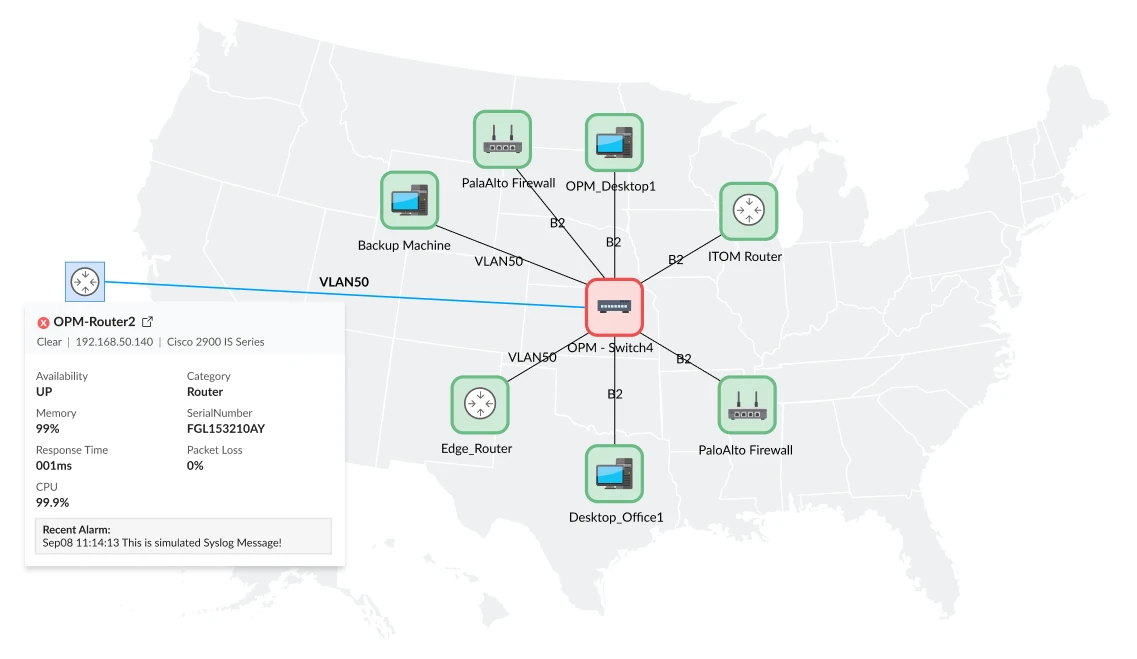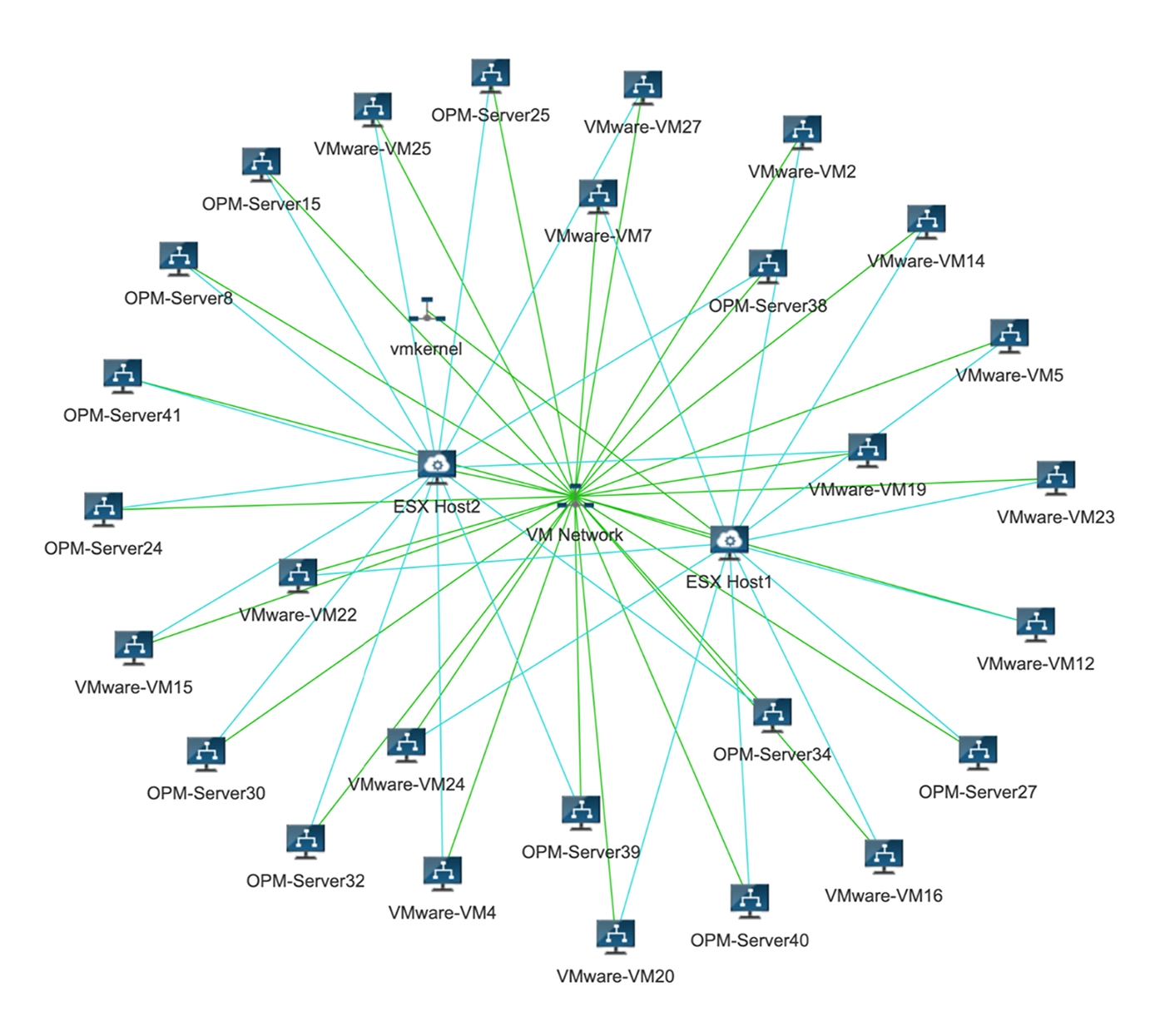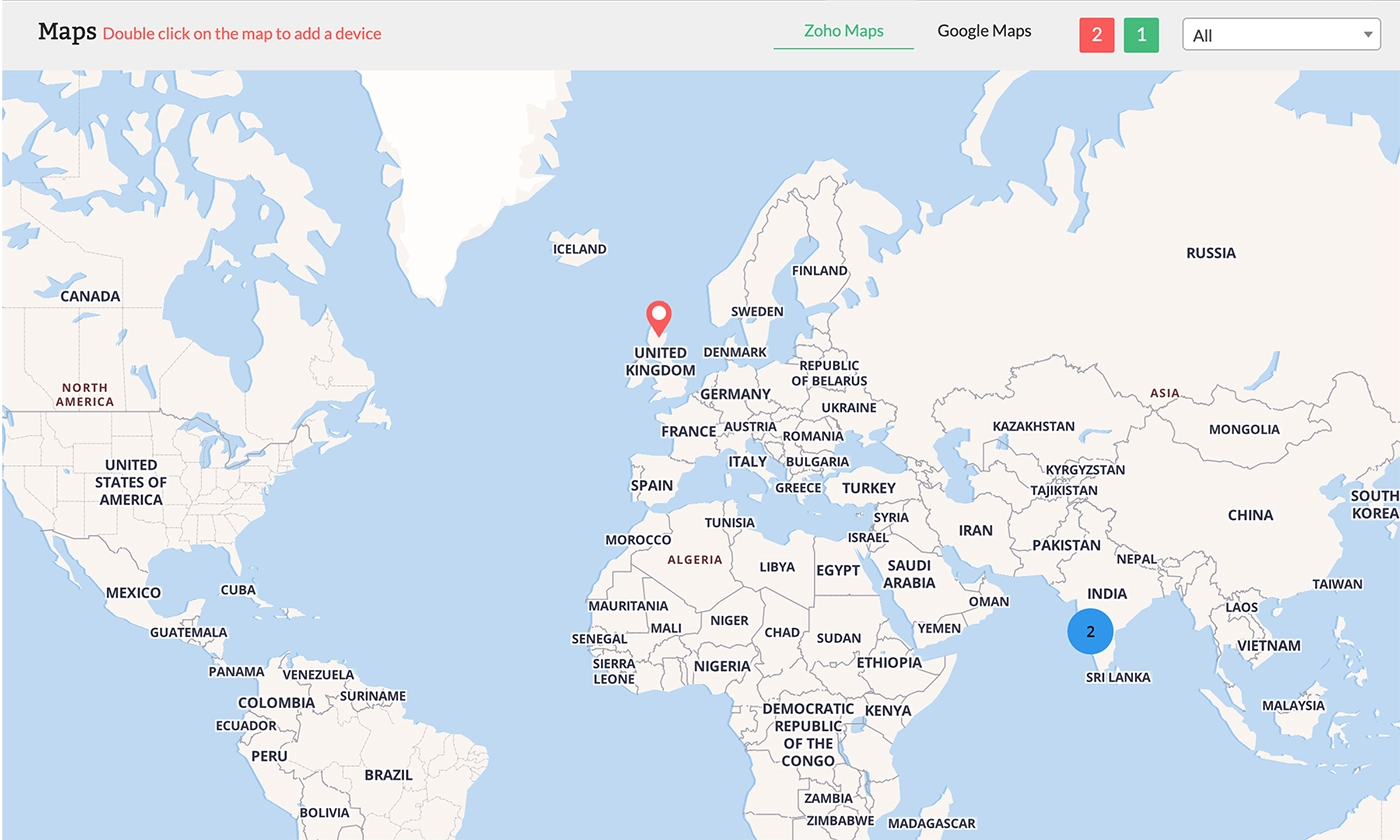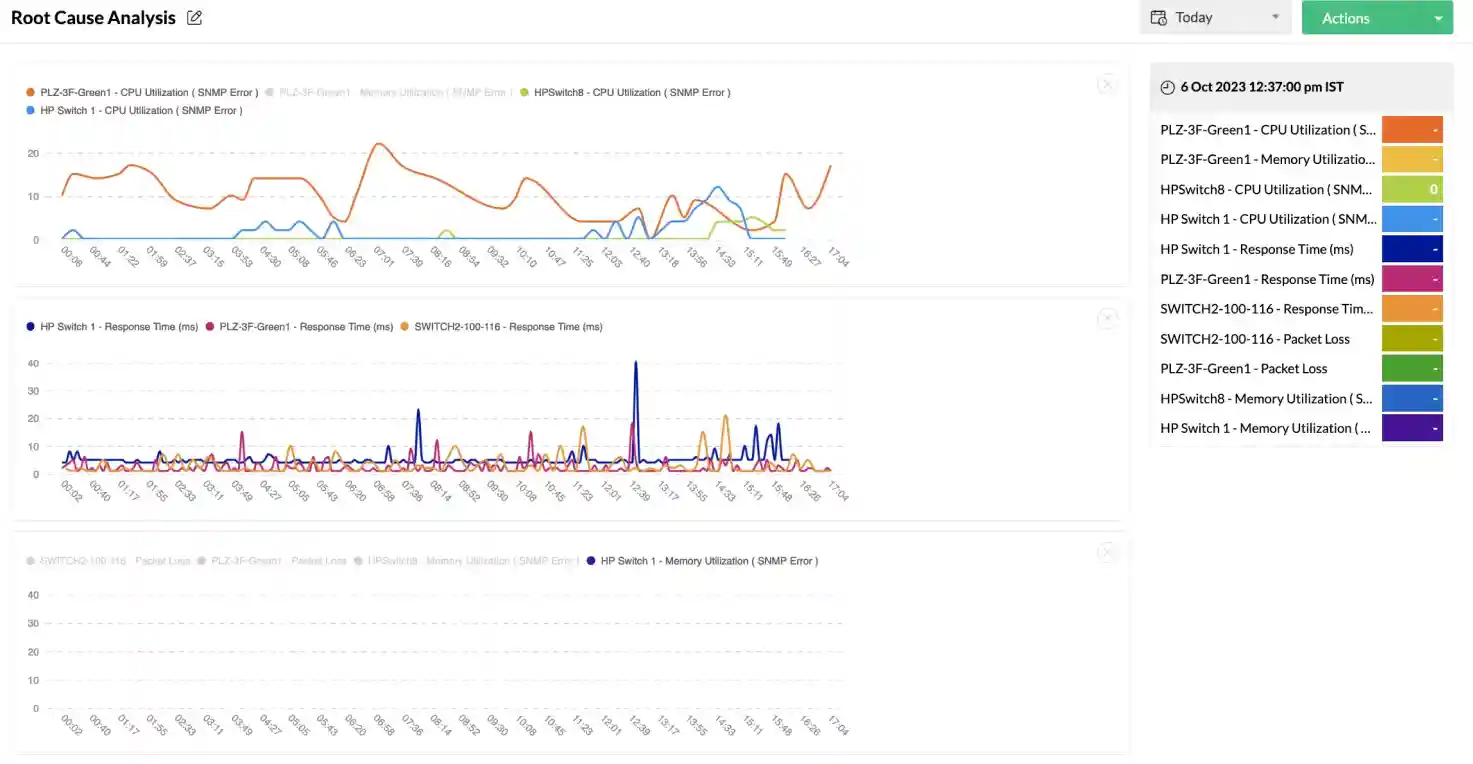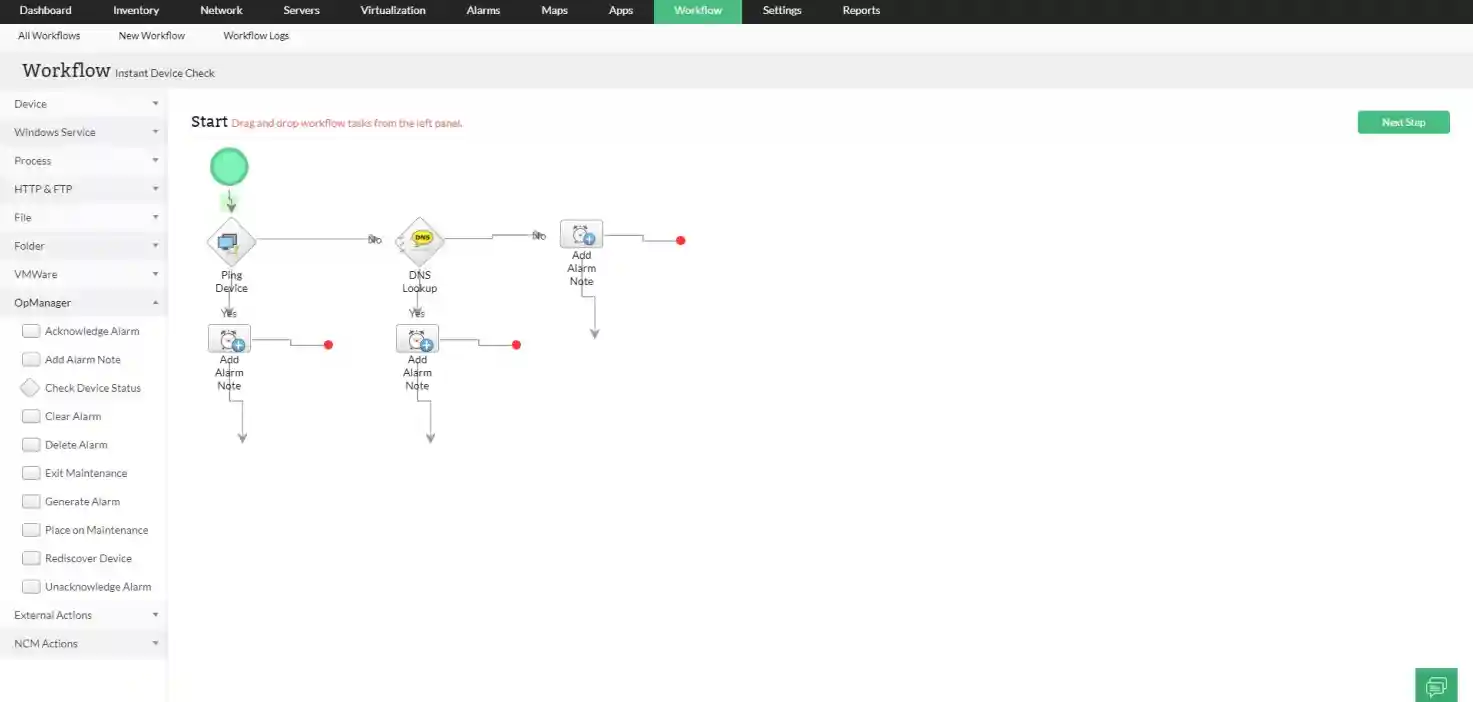Discovery
- OpManager automatically discovers devices across your network using protocols like SNMP, ICMP, and WMI.
- Whether it’s a small branch setup or a complex data center environment, discovery is the first step toward complete visibility. Devices are identified, classified, and organized- ready to be visualized.
